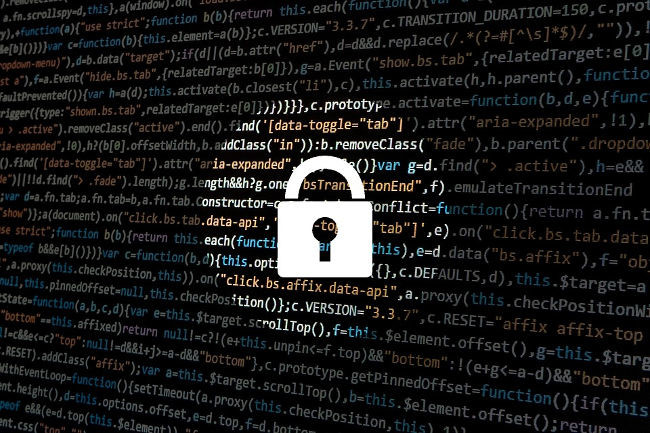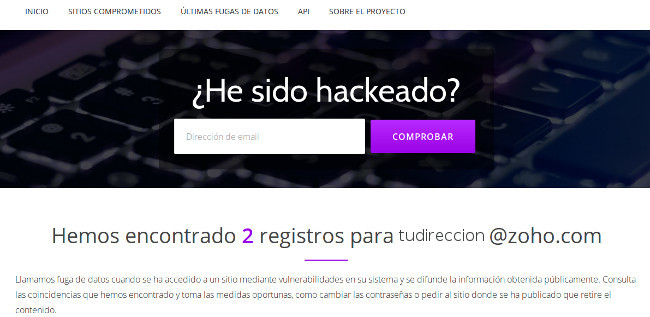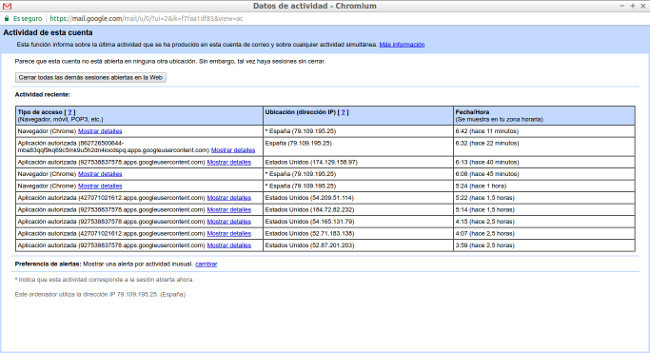
The Internet has become an indispensable tool for most of the people. You access different services and platforms in which we register and provide personal data. And the bad thing is that in many of them we have transferred the security practices that we have in our home computers. And of course, a computer that we know no one will access is not the same as identifying on an Internet platform. That is why we are going to see how to know if you have been hacked on an Internet website ..
The main danger is that a cyber attacker takes over our account, our data, but also our identity. But also if we always use the same password for everything , we will have a serious problem. The security breaches of different websites and the consequent data thefts occur periodically. Yahoo, Dropbox, Adobe or Steam are just some of the loudest examples.
How do you know if you have been hacked on an Internet website?
The most recommended is to use a different password for each page or service in which we register . Otherwise, if you have been hacked you will have to change the access passwords in all the services you use or you have registered with the same password. And this can be a complicated task if we are not clear on how many sites we have registered.

Normally, we are not aware of the number of sites that have had security problems and how they can affect us. That is why there are specialized pages such as Hesidohackeado.com where it is enough to enter the email address associated with a service to know whether or not we are in danger. The truth is that the results will surely surprise more than one..
For each account, the services and platforms in which we are registered are indicated and if they have suffered a security incident due to which the data of our credentials may have been exposed. In these cases, it must be taken into account whether at the time, when we receive the service's notice about the incident, we change the access password or not. In any case, if we have doubts, it is best to change it again.
Information on each leak is provided on when it happened, how much data was stolen , or how many email accounts were exposed. With all this we have the necessary elements to see the importance of data leakage and how it can affect us as users..
Another alternative to check if our email account is associated with a service that has suffered an incident or not is the HaveBeenIPwned.com page. The operation is similar to the previous page. In fact, if we check the same addresses, it is most likely that they will find the same vulnerabilities, but they do not have exactly the same databases. That's why it never hurts to do a second check.
Finally, some email accounts, such as Gmail, to prevent problems notify us of logins from computers that are not common . They also give us the pertinent instructions to contain a possible security problem in case we have not been the ones who have accessed.
Check your Gmail activity
Gmail also offers to review the activity associated with our account. In the case of Google mail, just go to the bottom of the inbox where we have a link to the last activity of the account . Here a window opens that tells us from where it has been accessed.
In this case, it is convenient not to get nervous if we see that it is accessed from a different country, especially if we use extensions in the browser or we have given permission to different services to use Google credentials to identify themselves.

What to do if you have been hacked?
As we have mentioned before, if the email account has been hacked, the immediate thing is to change the password to access the service. If we only used these credentials for this service we can rest assured. The downside is to always use the same for all platforms. Then we will have to change the password in all the sites where we have registered.
The problem is that on many occasions we do not even remember where we have registered . Sometimes it has simply been entered to test how it works, but we have not tested again. And yet access has been compromised.
We will also have to change the passwords also in the mobile apps of our smartphone or tablet that we use. All of this is inconvenient for most users, in exchange for improved security. As always, using strong passwords is always a good measure to avoid problems in the future.
In Lenovo Blog | I deleted my files from my computer by mistake and I don't have a backup, can they be recovered?
Image | typographyimages